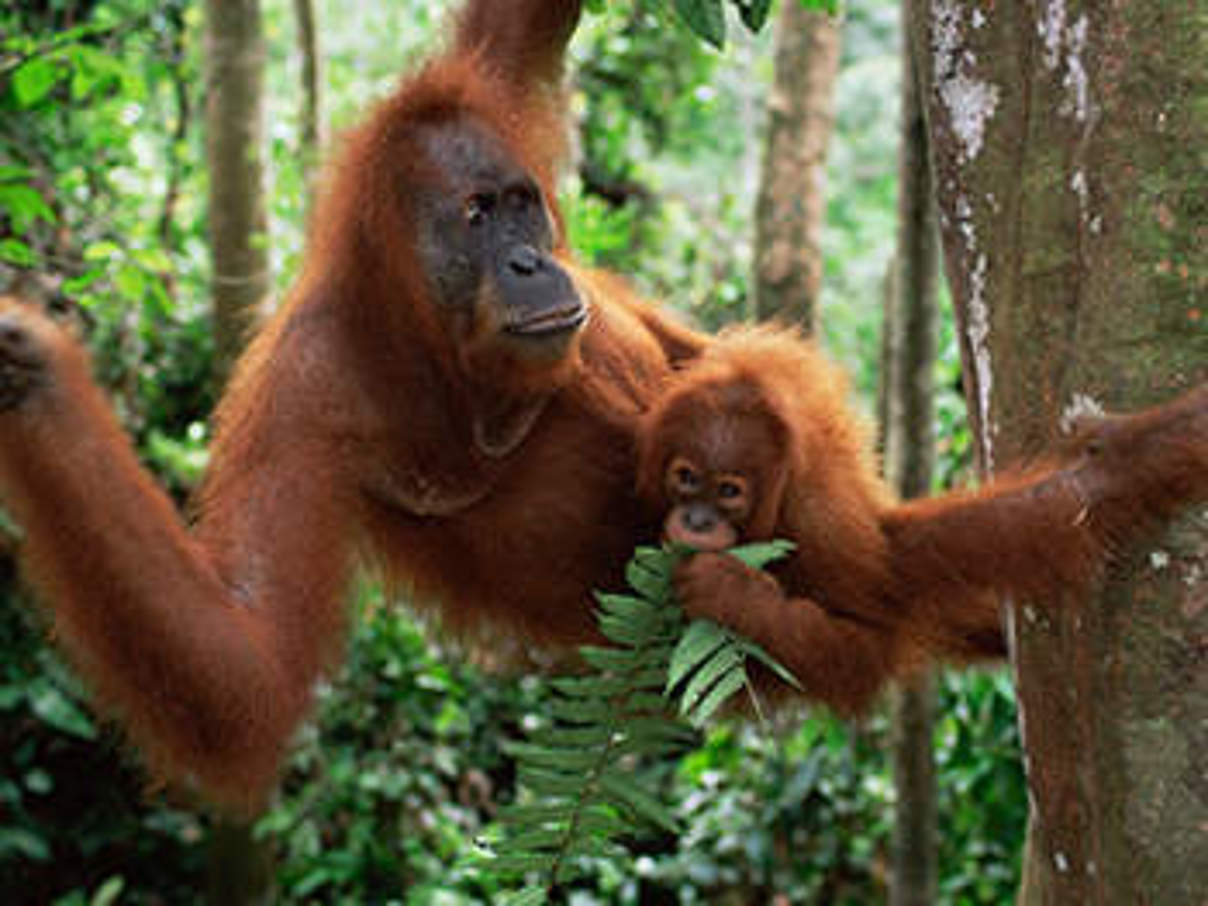How Indonesia tackles the extinction of Orang Utans
AND HOW YOU CAN HELP

Sixty percent of the world’s wildlife was lost in the last 45 years, which is why The Nature
Conservancy is
dedicated to
protecting lands so wildlife populations have room to thrive. In Indonesia, we are taking a holistic
approach to
conserving orangutans.
The tropical rainforests of Indonesian Borneo—the third-largest island in the world—straddle the equator in
Southeast
Asia and are home to an incredible diversity of plants and animals. Among them is the orangutan. More than
three-quarters of the world’s orangutans rely on the bounty of these lush rainforests for survival. Their
name
even
comes from the Indonesian words orang and hutan, meaning “person of the forest.”
The rainforests of Indonesian Borneo are the orangutans' forests.
Yet throughout Borneo, orangutans are becoming refugees from their forest homes as they are logged (often
illegally)
or
cleared to make way for new mines and vast oil palm plantations. Indonesia produces about half of the
world’s
palm
oil,
a profitable and ubiquitous food and cosmetics ingredient that has driven slash-and-burn deforestation and
destruction
of peat lands.
Millions of acres of forests where orangutans once roamed are now green deserts that support only human
consumption.